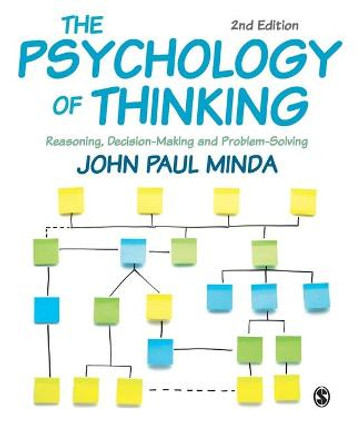Description
About the Author
Paul Brest is the President of the William and Flora Hewlett Foundation in Menlo Park, California. Mr. Brest received an A.B. from Swarthmore College in 1962 and an LL.B from Harvard Law School in 1965. He served as law clerk to Judge Bailey Aldrich and Supreme Court Justice John M. Harlan, and practiced with the NAACP Legal Defense and Educational Fund, Inc., in Jackson, Mississippi, doing civil rights litigation before joining the Stanford Law School faculty in 1969, where his research and teaching focused on constitutional law and problem solving/decision making. From 1987 to 1999, he served as the dean of Stanford Law School. Mr. Brest is co-author of Processes of Constitutional Decisionmaking (5th ed. 2006), and currently teaches a course on Judgment and Decisionmaking in a graduate program in Public Policy at Stanford University. Linda Hamilton Krieger is a lawyer, law professor, organization development facilitator, and social activist who has long worked to help individuals and progressive community organizations improve their strategic decision making by incorporating into their thinking insights from cognitive social psychology, statistics, and organization theory. Professor Krieger received her A.B. from Stanford University in 1975, and a J.D. from the New York University School of Law in 1978. She practiced as a civil rights lawyer in San Francisco from 1978 to 1996. During that time she also helped found and govern three nonprofit community organizations emerging in response to the HIV/AIDS, including the San Francisco AIDS Foundation, the AIDS Interfaith Network, Hale Laulima, and the San Francisco Gay Bar Association's AIDS Legal Referral Service.
Reviews
"Brest and Krieger fill a huge vacuum. Their book is likely to transform the curricula of law schools and public policy schools by providing an excellent text for courses that systematically analyze the crucially important, but hitherto largely neglected, processes by which lawyers and policymakers exercise their judgment. Their multidisciplinary approach is ambitious and rigorous yet clear and accessible." -- Richard L. Revesz Dean and Lawrence King Professor of Law, New York University School of Law "Brest and Krieger pull off quite a trick here. The book is at once lucid, practical, and intellectually deep. The authors demonstrate admirable sophistication in interpreting the seminal psychological findings, as well as the rational choice inference and decision making models. At the same time, they repeatedly demonstrate how professionals might really improve how they do their work." --Mark G. Kelman James C. Gaither Professor of Law and Vice Dean, Stanford Law School "Brest and Krieger have written a book of extraordinary scope and depth. Practical examples effectively motivate the material, and the exposition is always clear and extremely insightful. There is much to learn from reading this book. I am eager to use it in my own undergraduate course." --Barry Schwartz Dorwin Cartwright Professor of Social Theory and Social Action, Swarthmore College "Brest and Krieger provide a holistic process for making effective decisions as problem-solving lawyers and policymakers. This textbook is groundbreaking in its breadth, depth, and versatility. There is nothing comparable for teaching students about the theoretical and practical dimensions of decision making. It is a brilliant tour de force." --Mark Neal Aaronson Professor of Law, University of California, Hastings College of the Law "This book employs a much needed academic and non-skills approach to illuminate lawyers' work and thinking. The multi-disciplinary methodology enriches our understanding of interviewing, counseling, and negotiation and brings to the fore the decisions some lawyers make unconsciously. It does this by examining lawyers' tasks from a rational and empirical basis and grounding them in a larger context. Those interested in clinical teaching will appreciate this supplement to their pedagogy." --Kandis Scott Professor of Law, Santa Clara Law "This book presents an excellent and comprehensive analysis of how we solve problems and make decisions in legal matters. It is a great tool for teaching novice legal decision makers about these critical skills because it breaks down the process into several easily understood but helpful steps. It also is an engaging resource for experienced practitioners and policy makers because it explores the behavioral aspects and systematic biases that underlie our decision making processes. It is a great book for any law student or lawyer who wants to improve her problem solving skills and make better decisions." -- Kenneth R. Margolis Professor of Law, Director of the CaseArc Integrated Lawyering Skills Program, Case Western Reserve University School of Law "Brest and Krieger offer a thorough and insightful integration of the field of decision making and the legal context. This work offers the necessary overview of behavioral decision research and behavioral economics for legal scholars, and wisdom for any lawyer who wants to make better decisions." --Max H. Bazerman, Jesse Isidor Straus Professor of Business Administration, Harvard Business School "This book has the rare combination of being accessible to people without any experience in the field, while still being interesting and useful to experts. The authors have done a wonderful job of being both engaging and clear while maintaining rigor, accuracy, and thoroughness. This is an authoritative source for policy makers who want to create psychologically informed policy. I will most certainly be adopting it for courses I teach on the interplay between psychology and public affairs." -- Daniel M. Oppenheimer, Associate Professor of Psychology and Public Affairs, Princeton University "This book is not only the most comprehensive text yet written in the field of judgment and decision making. It is an impressive and beautifully organized compilation of the knowledge and insight created during a half-century of research. It will educate veteran researchers as well as students and anyone making important decisions." --Paul Slovic, President, Decision Research
Book Information
ISBN 9780195366327
Author Paul Brest
Format Paperback
Page Count 696
Imprint Oxford University Press Inc
Publisher Oxford University Press Inc
Weight(grams) 953g
Dimensions(mm) 155mm * 231mm * 31mm






